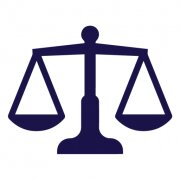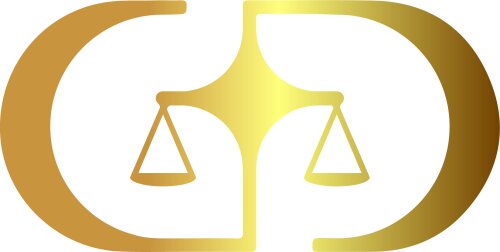Best Child Custody Lawyers in Bahía Blanca
Share your needs with us, get contacted by law firms.
Free. Takes 2 min.
Free Guide to Hiring a Family Lawyer
List of the best lawyers in Bahía Blanca, Argentina
About Child Custody Law in Bahía Blanca, Argentina
Child custody (responsabilidad parental) in Bahía Blanca, Argentina is guided by the principles established under the Argentine Civil and Commercial Code. The main focus is always the well-being and best interests of the child. Whether the parents are married, separated, divorced, or were never in a formal relationship, both have rights and obligations regarding the care, upbringing, and development of their children. Courts in Bahía Blanca typically encourage co-parenting agreements but can intervene to establish custody arrangements if parents cannot agree.
Why You May Need a Lawyer
Pursuing a child custody arrangement in Bahía Blanca can involve complex legal and emotional factors. You may require the help of a lawyer in several situations, including:
- Your relationship with the other parent is strained or contentious.
- You are experiencing difficulties in agreeing on child care, school choices, visitation, or financial support.
- There are significant changes in the child’s circumstances, such as relocation, health issues, or risk situations (domestic violence, substance abuse, etc).
- You wish to modify an existing custody arrangement.
- You are concerned that the other parent will not comply with a court order.
- You want to understand your rights under Argentine law as a parent or guardian.
- There is an international or inter-provincial element to your case (for example, one parent plans to move abroad).
Local Laws Overview
Child custody law in Bahía Blanca follows national Argentine law but is administered locally. The most relevant aspects include:
- The main law governing child custody is the Civil and Commercial Code of Argentina, which replaced the old Civil Code in 2015.
- Both parents share parental responsibility unless a judge determines otherwise, even if the couple is separated or divorced.
- Court proceedings take place in the Family Court ("Juzgado de Familia") in Bahía Blanca.
- Judges prioritize what they determine to be in the child’s best interests, after listening to both parents and, where appropriate, the child’s own wishes (especially if the child is over 10 years old).
- Custody can be "shared" (joint) or "individual" (sole), depending on the family situation and the child's needs.
- Visitation rights and child support are closely linked to custody but are addressed as separate issues.
- Emergency protections (such as restraining orders) are available where there is risk to the child or one parent.
- Child custody arrangements approved by the court are legally binding and enforced by local authorities.
Frequently Asked Questions
What is the difference between shared and sole custody?
Shared custody means both parents participate actively in making decisions and providing care, while sole custody grants decision-making and daily care primarily to one parent, although the other parent may still have visitation rights.
Do Argentine courts prefer shared custody?
Yes, the legal presumption is in favor of shared parental responsibility, except when it is not in the child's best interests.
How is custody decided if parents cannot agree?
If parents cannot reach an agreement, the family court will review the case and make a decision based on the child's best interests, listening to both parents and sometimes the child.
Can my child choose which parent to live with?
While children do not have the final say, courts will listen to the wishes of children, especially those over age 10, but the final decision rests with the judge.
What if the other parent breaks a custody or visitation agreement?
You can file a complaint with the family court, which can enforce the order and, in some cases, impose penalties on the non-complying parent.
Can custody arrangements be modified?
Yes, custody orders can be reviewed and modified if there are significant changes in circumstances that affect the child's welfare.
Will my immigration status affect custody rights?
Generally, custody is based on the child's best interests, not the parents' nationality or immigration status, although these factors may be relevant in specific cases.
Is it possible to get temporary custody in emergencies?
Yes, you can request urgent measures from the court if there is an immediate risk to the child or parent, such as in cases of violence or neglect.
Can a grandparent or other relative get custody?
In certain circumstances, such as parental incapacity or absence, relatives (like grandparents) can request custody, subject to a judge’s approval.
Do I need to hire a lawyer for custody proceedings in Bahía Blanca?
It is highly recommended to have legal representation, as the process involves formal legal steps, and a lawyer can best defend your and your child’s rights.
Additional Resources
If you are seeking information or assistance with child custody in Bahía Blanca, the following resources can be helpful:
- Juzgado de Familia de Bahía Blanca - The Family Court handles all child custody and family law matters.
- Defensoría Civil - The Public Defender's office provides legal assistance to those who cannot afford a lawyer.
- Ministerio de Justicia y Derechos Humanos de la Nación - The Ministry supplies information and services on rights and legal processes.
- Centros de Acceso a la Justicia (CAJ) - Community centers offering free legal information and support.
- Col·legio de Abogados de Bahía Blanca - The Bar Association can help connect you with qualified family law specialists.
- NGOs and local organizations focused on family welfare and children's rights.
Next Steps
If you need legal assistance with a child custody matter in Bahía Blanca, consider the following steps:
- Gather all relevant documents - birth certificates, any existing agreements, evidence relevant to your case.
- Consult with a family law lawyer familiar with local courts and procedures in Bahía Blanca.
- Contact the Family Court or the relevant public legal office if you need immediate protection or support.
- If you cannot afford a private lawyer, reach out to the Defensoría Civil or Centros de Acceso a la Justicia for help.
- If possible, try to reach an amicable agreement with the other parent to present to the judge, as courts favor solutions that involve cooperation between parents.
- Prepare emotionally and practically for the process - consider the impact on your child and seek supportive resources as needed.
Lawzana helps you find the best lawyers and law firms in Bahía Blanca through a curated and pre-screened list of qualified legal professionals. Our platform offers rankings and detailed profiles of attorneys and law firms, allowing you to compare based on practice areas, including Child Custody, experience, and client feedback.
Each profile includes a description of the firm's areas of practice, client reviews, team members and partners, year of establishment, spoken languages, office locations, contact information, social media presence, and any published articles or resources. Most firms on our platform speak English and are experienced in both local and international legal matters.
Get a quote from top-rated law firms in Bahía Blanca, Argentina — quickly, securely, and without unnecessary hassle.
Disclaimer:
The information provided on this page is for general informational purposes only and does not constitute legal advice. While we strive to ensure the accuracy and relevance of the content, legal information may change over time, and interpretations of the law can vary. You should always consult with a qualified legal professional for advice specific to your situation.
We disclaim all liability for actions taken or not taken based on the content of this page. If you believe any information is incorrect or outdated, please contact us, and we will review and update it where appropriate.









